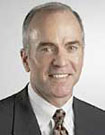|

|
The
views expressed
on this page are soley those of the author and do not
necessarily
represent the views of County News Online
|
 |
Townhall
NSA
Surveillance and the Dangers of Power
Steve Chapman
Mar 30, 2014
Every so often, we get proof that Barack Obama, when confronted with a
grievous abuse of government power by his administration, will do the
right thing. Sometimes, I mean. When he can't get away with it anymore,
that is. Just as soon as he's tried everything else.
That's the case with his domestic phone records collection, which the
president finally said he wants to put under tighter control than
before. At moments like this, believe it or not, Obama sounds faintly
like that guy who ran to replace George W. Bush.
"This administration acts like violating civil liberties is the way to
enhance our security," he complained in 2007, while promising to be
very different. "We will again set an example for the world that the
law is not subject to the whims of stubborn rulers."
But it turns out Obama was not against indulging the whims of a
stubborn ruler if that ruler happens to be him. Upon arriving in the
White House, he left the Bush-Cheney surveillance programs largely
alone. Why? "He has more information than he did then," one former aide
confided to The New York Times. "And he trusts himself to use these
powers more than he did the Bush administration."
The fact that Obama trusted himself with these powers is ample reason
the rest of us shouldn't. But we already had sufficient cause for
suspicion. Our Constitution does not show an abundance of trust in
elected officials. It rests on the belief that those in power need to
be curbed and checked at every turn.
James Madison made the point memorably in The Federalist: "If angels
were to govern men, neither external nor internal controls on
government would be necessary. In framing a government which is to be
administered by men over men, the great difficulty lies in this: you
must first enable the government to control the governed; and in the
next place oblige it to control itself."
Obama, however, lost interest in controlling his intelligence agencies
until Edward Snowden let the American public know what they were doing.
It then became apparent that the sort of people who have been
implementing the Affordable Care Act bear a strong resemblance to those
running surveillance -- with the same regard for legal obligations and
the same level of competence.
The Foreign Intelligence Surveillance Court, which has been
exceptionally tolerant of the National Security Agency's interpretation
of its authority, found that no matter how generous the boundaries it
set, the agency blew right through them...
Read the rest of the article at Townhall
|
|
|
|

